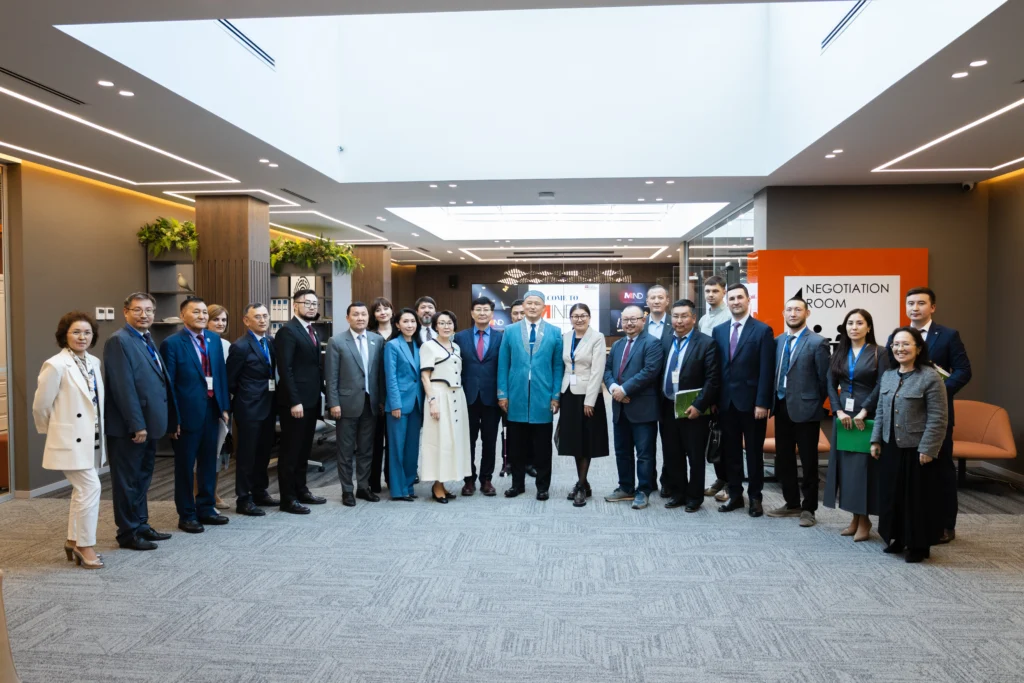Deputies and Experts from Maqsut Narikbayev University (MNU) propose making Kazakhstani laws more understandable for citizens. An off-site meeting of the Working Group of the Committee on Legislation and Judicial-Legal Reform of the Majilis of the Parliament of the Republic of Kazakhstan was held at Maqsut Narikbayev University. The participants focused on improving the law-making process, with particular attention given to making legal norms clearer and more accessible to the public.
Improving the readability of legal acts plays a key role in the development of an effective legislative process. Using accessible legal language helps simplify law enforcement, increase legal literacy, and reduce legal risks. During the meeting, participants discussed the draft Law of the Republic of Kazakhstan “On Amendments and Additions to Certain Legislative Acts of the Republic of Kazakhstan on Issues of Improving Lawmaking”.
“Modern legislation should not only be stable and logically verified, but also understandable – both for specialists and for all citizens. Today, the problems of perception and readability of regulatory legal acts are widely discussed in society, in the expert community and in government agencies. Indeed, the texts of many acts contain overloaded constructions, complex formulations, and an excessive number of legal terms. All this makes it difficult to understand even for lawyers, not to mention a wide audience. Brevity and simplicity of presentation contribute to a better perception and understanding of legal norms, reduce the likelihood of ambiguity and errors in explanation, and ensure the authenticity of texts of regulatory legal acts in Kazakh and Russian,” said Snezhanna Imasheva, Deputy of the Majilis of the Parliament of the Republic of Kazakhstan.

As Snezhanna Imasheva emphasized, the proposal suggests limiting the number of words in a sentence to 30. This approach implies that each sentence of the law should be clear, specific, and convey one logical thought. Meanwhile, MNU previously presented the research project “Readability of Legal Acts,” which aims to study the readability of legal documents using artificial intelligence.

“Our project to assess the readability of legal acts is an initiative that unites the efforts of lawyers, sociologists, specialists in the field of jurisprudence and information technology. Regulatory legal acts, which are primarily for citizens, are written in a very complex language. Therefore, they do not understand the laws, which eventually leads to a deterioration in legal literacy. Today’s discussion is an important step in the formation of a new culture in which people and their rights are at the center,” said Talgat Narikbayev, Chairman of the MNU.
Representatives from MNU also underscored the importance of maintaining systematic terminology. The university previously presented the book “Kazakh-Russian Legal Dictionary: Mistakes and Interpretations,” aimed at improving bilingual legal communication. During earlier parliamentary hearings, Deputy Chair of the Senate Zhakip Asanov encouraged the broader application of the university’s methodology in legal drafting.
“Despite the fact that regulatory legal acts already have requirements for the language of presentation, in particular, for the use of legal terms and their explanation, in practice these norms are often not observed. The presented initiative does not provide for a complete revision of the current legislation, however, it can be applied to new legal acts, thereby contributing to improving the quality of the legal language in the future,” said Laura Mersalimova, Vice Minister of Justice of the Republic of Kazakhstan.
In addition, proposals made at the meeting will be taken into account in further legislative work.







